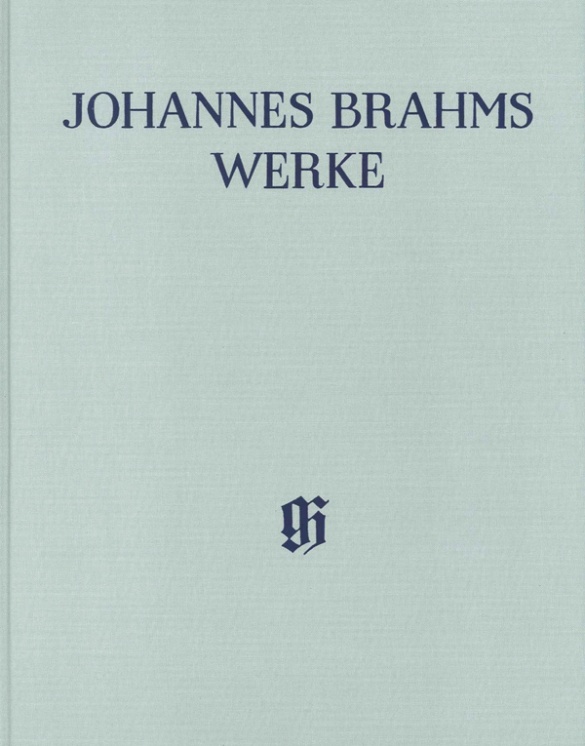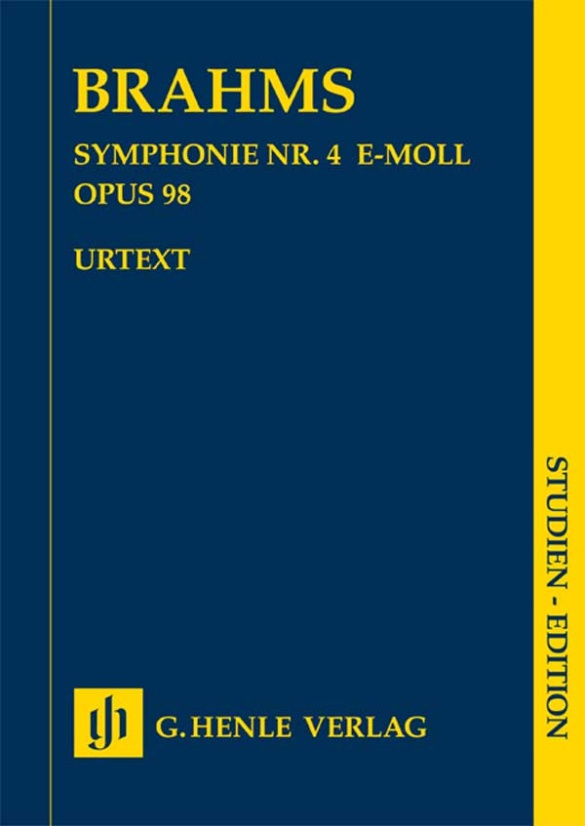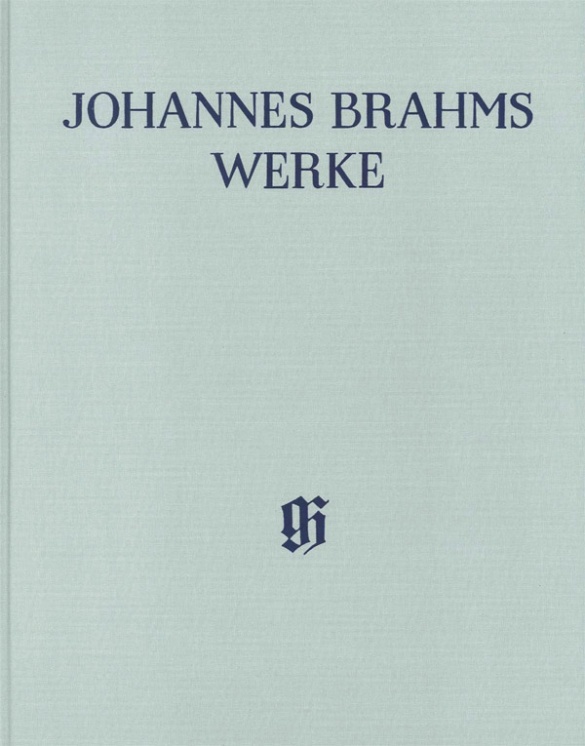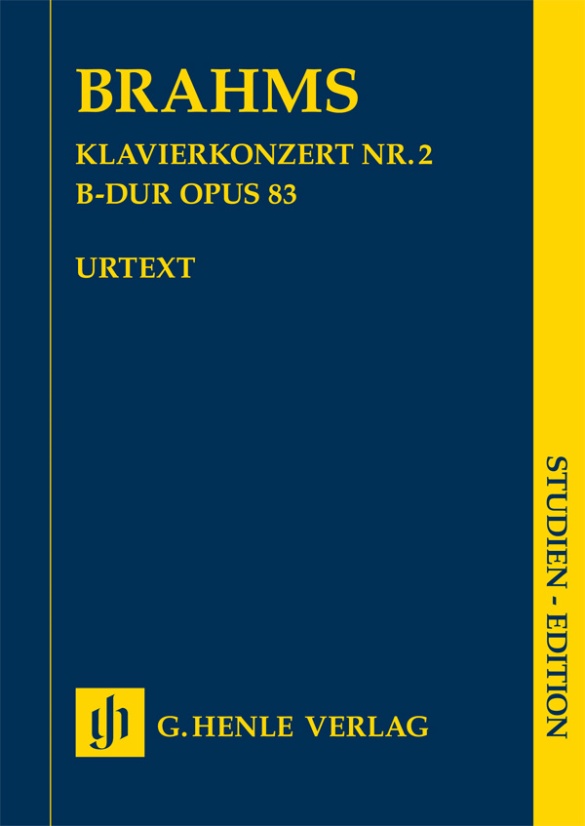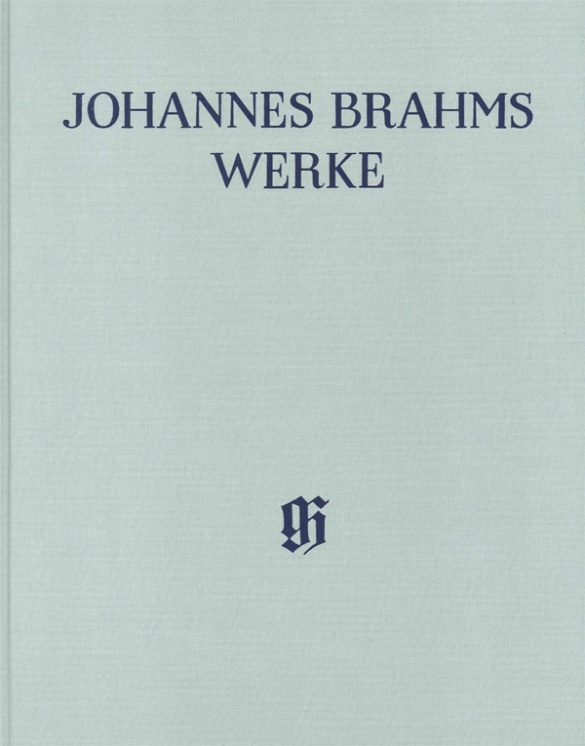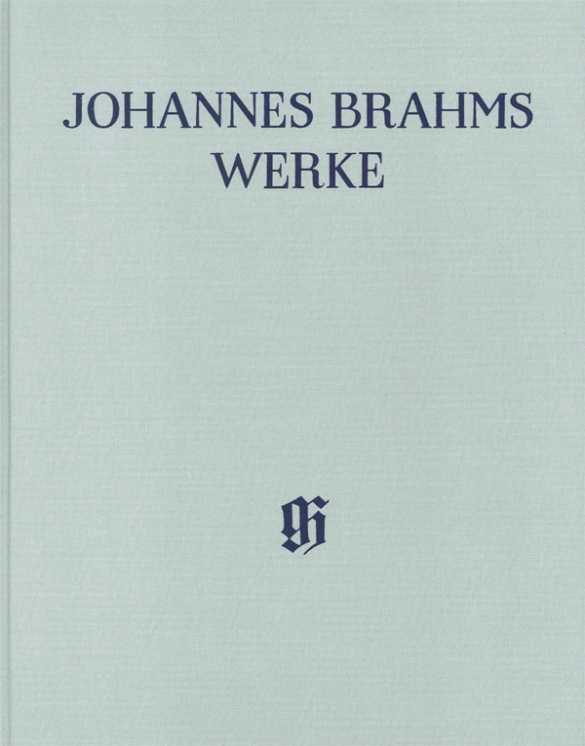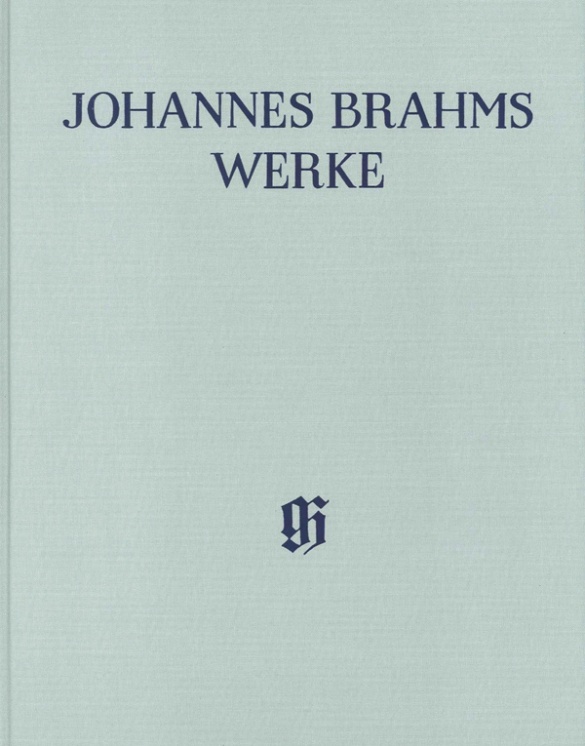Johannes Brahms
Ser. 1, Vol. 1 | Symphonie n° 1 en ut mineur op. 68
CONTENU/DÉTAILS
CONCERNANT LE COMPOSITEUR

Johannes Brahms
Son œuvre considérable comprend de la musique de chambre, des œuvres pour piano, de nombreuses compositions pour chœur et des lieder (parmi lesquels des compositions sur des textes de chants populaires) ainsi que les grandes pages orchestrales des années 1870 et 80. Ses compositions sont marquées par le procédé de la variation à développement. Il passe à la fois pour avoir été aux antipodes de la Nouvelle École allemande animée par Liszt et le représentant de la «musique absolue».
| 1833 | Né le 7 mai à Hambourg en tant que fils d’un musicien. À l’âge de 7 ans il prend ses premières leçons de piano chez Willibald Cossel, puis chez Eduard Marxen. Premières auditions publiques à partir de 1843. |
| 1853 | Lors d’une tournée de concerts dans les villes allemandes, il fait la connaissance de Schumann qui, dans son article «Neue Bahnen» (Nouvelles voies) l’annonce comme le grand compositeur à venir. Il noue avec Clara Schumann une profonde amitié qui tiendra toute sa vie. |
| 1854–57 | 1er Concerto pour piano en Ré mineur op. 15. |
| 1857–59 | Chef de chœur, pianiste et enseignant à la cour princière de Detmold. |
| 1859–61 | Direction du chœur de femmes de Hambourg. |
| 1860 | Manifeste contre les «Nouveaux Allemands» autour de Liszt. |
| 1863 | Cantate «Rinaldo» op. 50. |
| 1863 | Directeur de l’Académie de chant de Vienne. |
| 1868 | Exécution partielle du «Requiem allemand» op. 45 à Vienne (création de l’œuvre intégrale en 1869 à Leipzig). |
| 1871–74 | Directeur artistique de la Société des Amis de la Musique à Vienne. |
| 1873 | Variations sur un thème de Haydn op. 56a pour orchestre. |
| à partir de 1877 | Son œuvre symphonique débute par la 1re Symphonie en Ut mineur op. 68 (commencée en 1862), composition de la 2e Symphonie en Ré majeur op. 73 (1877), 3e Symphonie en Fa majeur op. 90 (1883), 4e Symphonie en Mi mineur op. 98 (1884-1885): thèmes expressifs, style de type musique de chambre. |
| à partir de 1878 | Voyages en Italie. |
| 1878 | Concerto pour violon en Ré majeur op. 77 pour Joseph Joachim. |
| 1881 | 2e Concerto pour piano en Si bémol majeur op. 83 avec Scherzo. |
| 1886 | Président d’honneur du Tonkünstlerverein de Vienne. |
| 1897 | Vier ernste Gesänge (Quatre chants sérieux) op. 121. Meurt le 3 avril à Vienne. |
About the Authors
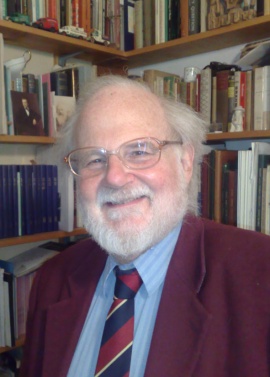
Robert Pascall (Editeur)
Prof. Dr. Robert Pascall (b. Colwyn Bay, 1944, d. June 9, 2018) studied under Sir Jack Westrup at Oxford. He wrote books, analyses and editions of music from Bach to Schoenberg, with a special focus on Brahms. He was Professor and Head of Music at the University of Nottingham 1988-1998 and at Bangor University 1998-2005.
Until his death he was Honorary Professor of Music Philology at the University of Cambridge. He acted as Vice-chair of the new Complete Brahms Edition from its inception in 1991 and was then a member of its Beirat. He edited the symphonies for this edition, including Brahms’s own arrangements of them for piano duet, and advised conductors and orchestras on historically informed performance of Brahms’s music. He was President of the Society for Music Analysis 1996-2000, and was Corresponding Director of the American Brahms Society and an Honorary Member of the Royal Musical Association.
Informations sur la sécurité du produit

G. Henle Verlag
Vous trouverez ici des informations sur le fabricant du produit.G. Henle Verlag e.K.
Forstenrieder Allee 122
81476 München
Allemagne
info@henle.de
www.henle.com
No research library can afford to be without this volume. It goes far beyond providing a carefully edited text; it invites the detailed contemplation of a score that has lost none of its central importance to Brahm’s career and to the history of the symphony ... If any question remains whether the Neue Brahms-Ausgabe should go forward, this volume alone should lay it to rest.
American Brahms Society, NewsletterThe new Complete Edition is the first text-critical edition of Brahm's entire Oeuvre. Adhering to principles and techniques of modern scholarship, it will present all Brahm's compositions, their alternative musical versions as well as his unpublished works and authentic piano arrangements ... Extensive source studies on Brahms' music manuscripts as of the late 1960s as well as the completion of a thematic and bibliographic catalogue have made it increasingly evident that a new historico-critical edition of Brahms' entire works is of vital importance. ... This edition will be the first to examine all available sources and thus aims to provide authentic musical scores purged of erroneous readings, such as scribal, copyist's or engraver's errors and all unauthorised textual additions.
Music Teacher Magazine... it is anticipated that many significant alterations of detail may be expected in the new edition. In addition to examining all of Brahms' surviving autographs, the editors will take significant information on the genesis, dating and publication of his compositions from his written correspondence. Each volume will carry an extensive introduction and full critical apparatus.
BrioInvero, il lavoro compiuto sulla Prima Sinfonia – il cui presupposto è una conoscenza globale confluita poi nell’edizione critica – presenta un contenuto testuale e un corredo di apparati critici e di appendici che ricoprono una funzione tanto vasta quanto è il beneficio che può produrre, oltre che all’interprete, agli studi in ambito storico-critico e analitico, agli studi sulla genesi e sul processo compositivo, allo studio della ricezione dell’opera.
Philómusica online, 2002Die vorliegende Edition ist ein eindrucksvolles Zeugnis unaufdringlicher, uneitler und deshalb um so überzeugenderer Gelehrtheit, wie sie in der Brahms-Forschung leider immer seltener zu werden beginnt. … Der Notendruck besitzt besten Standard, Faksimiles erhellen anschaulich problematische und interessante Sachverhalte. Die Konzeption der JGB überzeugt auf Anhieb, weil sie sachlich-historisch geboten erscheint und der wissenschaftliche Aufwand, etwa auch die erfreulich prägnante Quellenbeschreibung in einem erkennbaren Verhältnis zu seinem Nutzen und Sinn bleibt.
Musikforschung, 1998If the new Brahms edition succeeds – … – it will be because in this first volume Pascall has raised a standard that succeeding volumes must aspire to equal.
Notes, 1997recommandations
autogenerated_cross_selling
Autres éditions de ce titre
Autres éditions de ce titre


